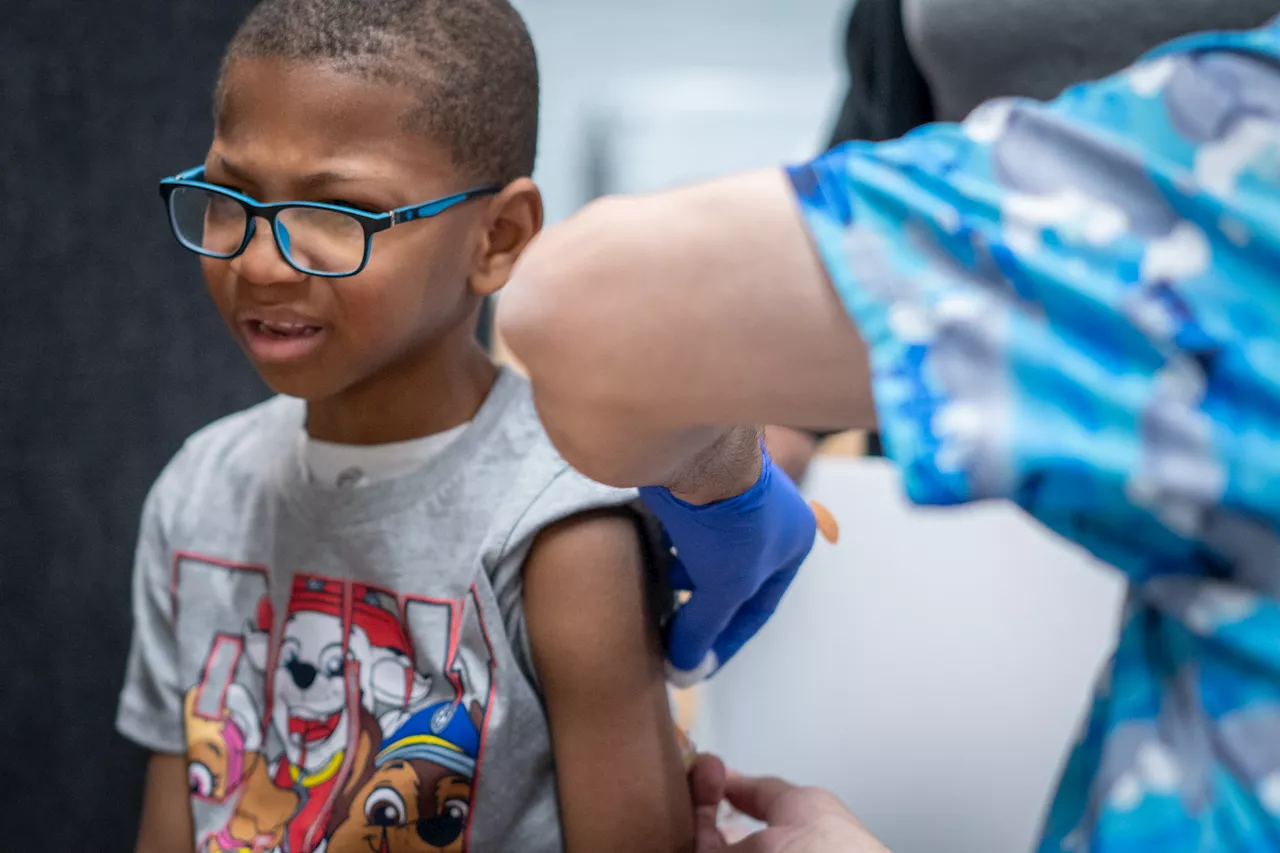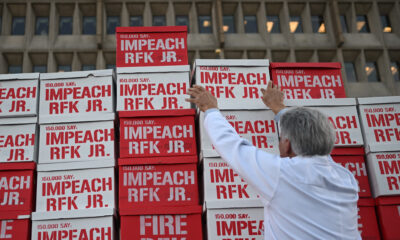Health
Poll Shows Growing Skepticism of Childhood Vaccines in the US

A recent survey reveals a significant decline in confidence regarding childhood vaccines among Americans. Conducted by the Pew Research Center, the poll highlights stark differences in attitudes based on political affiliation, demographic factors, and education levels.
The results indicate that only 53% of respondents believe childhood vaccines have undergone sufficient safety testing. This reflects a worrying trend as public trust in vaccine efficacy and safety appears increasingly polarized. While 80% of Democrats express strong confidence in the effectiveness of childhood vaccines, this figure drops to 48% among Republicans. Confidence is notably lower among parents of children under 18, with just 57% expressing high levels of trust in vaccines preventing serious illnesses.
Demographic Divides in Vaccine Confidence
The poll also reveals a considerable divide in sentiment across demographic lines. Approximately 74% of Democrats believe childhood vaccines have been adequately tested for safety, compared to only around 33% of Republicans. Among parents with children under 18, only 44% feel the same way.
Confidence levels appear higher among older individuals and those with higher education. The survey shows that 66% of white respondents express strong confidence in the efficacy of childhood vaccines, in contrast to 54% of Black respondents and 55% of Hispanic respondents. Additionally, only 50% of Black individuals and 49% of Hispanic individuals believe that vaccines have been adequately tested for safety.
The findings have prompted commentary from experts in public health. Dr. Jennifer Nuzzo, the director of the Brown University’s Pandemic Center, emphasized the importance of vaccinations not only for individual protection but also for the community. She stated, “The decision to vaccinate is not entirely a personal one. It’s also about protecting the most vulnerable among us.”
Concerns Over Vaccine Perceptions and Public Health
Despite widespread agreement on the importance of vaccines, skepticism persists, particularly among certain political groups. The poll indicates that Republicans are increasingly less likely to view the benefits of the measles, mumps, and rubella (MMR) vaccine as outweighing its risks. This shift is concerning, especially given the rise in measles cases across the United States, which Dr. Nuzzo noted is a preventable disease through vaccination.
The poll also revealed that a majority of Americans believe parents should have a significant role in vaccine policy decisions. 59% of respondents stated that parents with young children should play a major role, reflecting a potential divide over who should influence vaccination guidelines: medical experts or parents themselves.
As vaccination rates fluctuate and skepticism grows, public health officials are urged to address these concerns. Dr. Nuzzo expressed confidence in the vaccine development process, stating, “I have all the confidence in the world” in the current vaccination schedule, underscoring the need to bolster public trust in vaccination as a critical public health measure.
This survey highlights not only the current state of vaccine confidence in the United States but also the ongoing challenges in achieving widespread acceptance among diverse populations.
-

 Technology4 months ago
Technology4 months agoDiscover the Top 10 Calorie Counting Apps of 2025
-

 Health2 months ago
Health2 months agoBella Hadid Shares Health Update After Treatment for Lyme Disease
-

 Health3 months ago
Health3 months agoErin Bates Shares Recovery Update Following Sepsis Complications
-

 Technology3 weeks ago
Technology3 weeks agoDiscover 2025’s Top GPUs for Exceptional 4K Gaming Performance
-

 Technology4 months ago
Technology4 months agoDiscover How to Reverse Image Search Using ChatGPT Effortlessly
-

 Technology2 months ago
Technology2 months agoElectric Moto Influencer Surronster Arrested in Tijuana
-

 Technology4 months ago
Technology4 months agoMeta Initiates $60B AI Data Center Expansion, Starting in Ohio
-

 Technology4 months ago
Technology4 months agoRecovering a Suspended TikTok Account: A Step-by-Step Guide
-

 Health4 months ago
Health4 months agoTested: Rab Firewall Mountain Jacket Survives Harsh Conditions
-

 Lifestyle4 months ago
Lifestyle4 months agoBelton Family Reunites After Daughter Survives Hill Country Floods
-

 Technology3 months ago
Technology3 months agoUncovering the Top Five Most Challenging Motorcycles to Ride
-

 Technology4 weeks ago
Technology4 weeks agoDiscover the Best Wireless Earbuds for Every Lifestyle




















